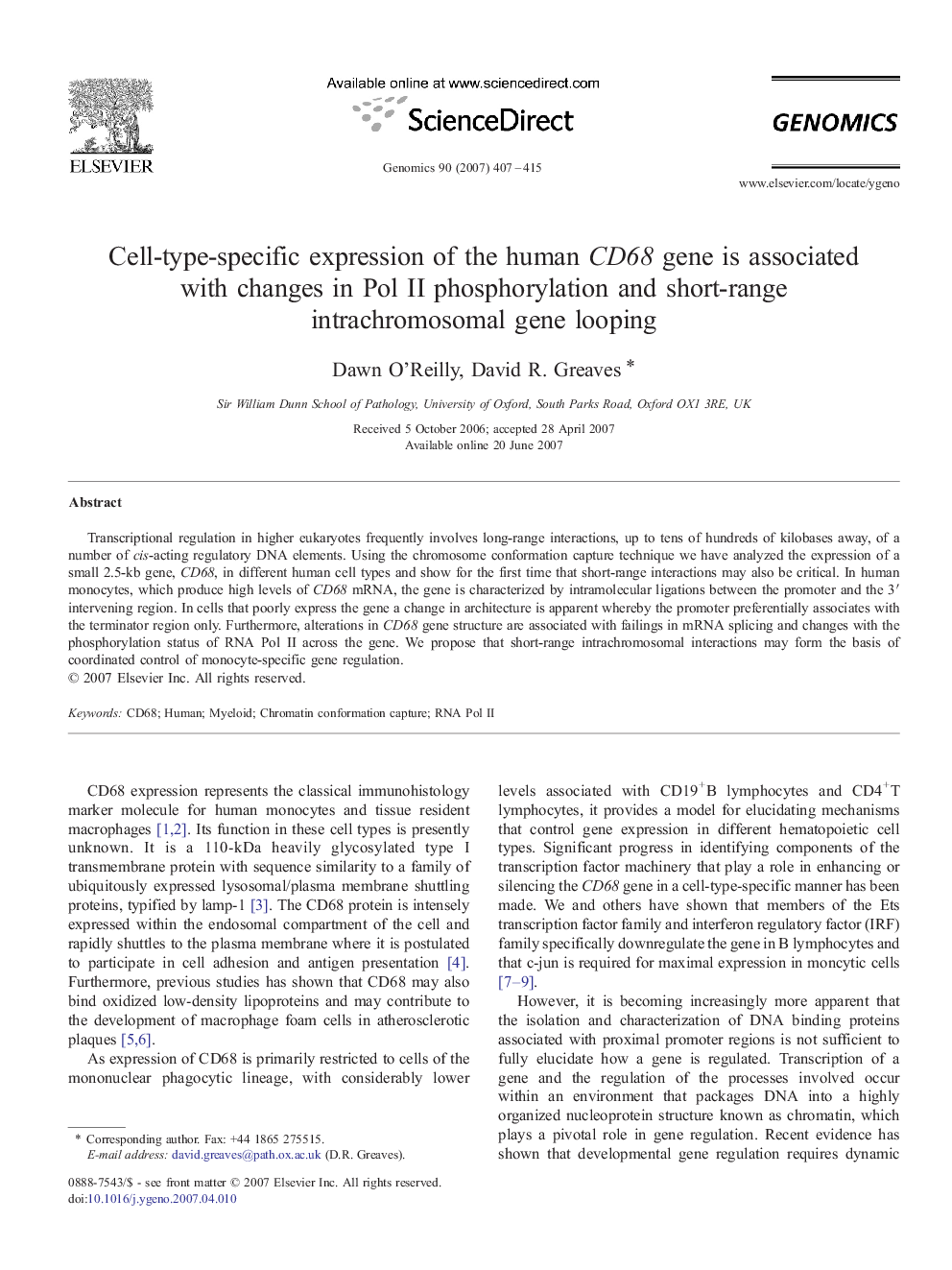| Article ID | Journal | Published Year | Pages | File Type |
|---|---|---|---|---|
| 5908073 | Genomics | 2007 | 9 Pages |
Abstract
Transcriptional regulation in higher eukaryotes frequently involves long-range interactions, up to tens of hundreds of kilobases away, of a number of cis-acting regulatory DNA elements. Using the chromosome conformation capture technique we have analyzed the expression of a small 2.5-kb gene, CD68, in different human cell types and show for the first time that short-range interactions may also be critical. In human monocytes, which produce high levels of CD68 mRNA, the gene is characterized by intramolecular ligations between the promoter and the 3â² intervening region. In cells that poorly express the gene a change in architecture is apparent whereby the promoter preferentially associates with the terminator region only. Furthermore, alterations in CD68 gene structure are associated with failings in mRNA splicing and changes with the phosphorylation status of RNA Pol II across the gene. We propose that short-range intrachromosomal interactions may form the basis of coordinated control of monocyte-specific gene regulation.
Keywords
Related Topics
Life Sciences
Biochemistry, Genetics and Molecular Biology
Genetics
Authors
Dawn O'Reilly, David R. Greaves,
